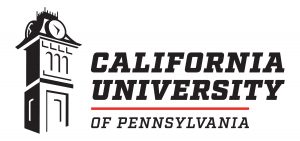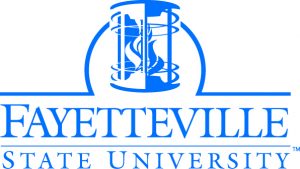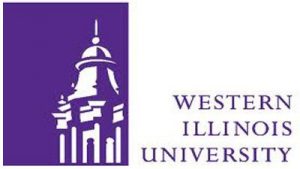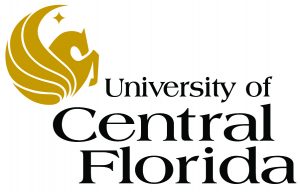Licensed register nurses interested in advancing into positions with greater responsibility and better pay may consider one of the many affordable online Bachelor’s in Registered Nursing degrees. These programs are designed to help them meet their career goals. Those who have already earned an associate degree or diploma in nursing are eligible to pursue a Bachelor of Science in Nursing degree within one year of full-time enrollment. All of the colleges and universities on the following list offer fully online courses. Some include an in-person requirement in which students must participate in a practicum experience or internship at a health care organization or facility in their local communities. If you want to advance your knowledge and have greater responsibilities, check out the following list of 20 affordable online bachelor’s degrees in registered nursing below.
Methodology
There are hundreds of programs available nationwide for licensed registered nurses seeking a Bachelor of Science in Nursing degree. If you have been narrowing down the programs in which you are interested or you are considering furthering your education for the first time, selecting the right school and degree can be time-consuming and overwhelming. To make the process easier, we used the National Center for Education Statistics College Navigator tool and conducted a search for the phrase “online Bachelor’s in Registered Nursing degree.” We then narrowed down more than 450 search results into the top 20 based on factors such as:
- one-year tuition rates for in-state students
- average student/faculty ratios
- reported graduation rates
- national rankings by U.S. News & World Report
To make sure the information we obtained was current, we cross-referenced our data with each school’s program website.
Average Cost of Attendance
As you look at the cost of each program, consider whether it offers the concentrations, specializations, or opportunities for hands-on learning that you are seeking. Keep tuition rates in mind, but don’t assume that inexpensive programs have nothing to offer. Some people mistakenly believe that the more expensive the program, the better the quality, but such is not always the case. For the following ranking, we ranked tuition based on the cost of one year of tuition based on in-state students taking 15 hours of coursework per semester. For your reference, we also provided out-of-state tuition rates as well.
Points:
Under $7,500: 3 points
$7,500 to $15,000: 2 points
$15,001 or more: 1 point
Student-to-Faculty Ratio
Comparing the student/faculty ratios of different schools can give you a good idea of the program’s learning environment. As you gather this information, think about whether you might prefer a small college or a large university. Are you looking for a smaller setting in which you can benefit from close relationships with your peers and faculty members? Or would you prefer a larger setting in which you can benefit from the availability of more concentration areas and opportunities for external internships? There are pros and cons to each, and every student has different preferences. We held higher regard the schools that indicated their classes consisted of an average of 10 or fewer students.
Points:
10:1 or less: 3 points
11:1 to 15:1: 2 points
Greater than 15:1: 1 point
College Ranking
One of the best ways to determine whether a program is worth pursuing is to see how it stacks up against other degrees offered at schools across the U.S. For instance, if one program offers a curriculum or specialization in which you are interested but lacks in other areas such as inexperienced faculty or few opportunities for hands-on learning, you can use national rankings to see if there is another program out there better suited to your needs. For this ranking, we used U.S. News & World Report’s Best Online Bachelor’s Programs category as a resource for determining the offerings and quality of each program and awarded points based on the following rankings.
Points:
U.S. News & World Report: Best Online Bachelor’s Program Ranking:
Top 25: 5 points
Top 50: 4 points
Top 75: 3 points
Top 100: 2 points
More than 100: 1 point
Graduation Rate
Another solid indicator of the quality of the academic programs, student learning outcomes, and faculty members at various schools is the graduation rate. Although prospective students might not give this category as much thought as national rankings or student/faculty ratios, it is important. It signifies whether a student is ultimately satisfied with the program. For example, if a particular school reports high graduation rates, one can deduce that undergraduates were impressed by the faculty, received opportunities for hands-on learning and academic support, and found the institution relatively affordable. Based on the table below, we awarded the highest number of points to schools that had the highest reported graduation rates.
Points
More than 50 percent: 3 points
Between 30 percent and 50 percent: 2 points
Less than 30 percent: 1 point
Ranking Top 20 Undergraduate Degree Programs in Registered Nursing
20. University of Texas Rio Grande Valley
Odessa, Texas

Points: 6
Program Website
The Registered Nurse to Bachelor of Science in Nursing (RN to BSN) online program at the University of Texas Rio Grande Valley prepares students for graduate study. It also prepares them for positions in which they provide care to:
- individuals
- families
- groups
- communities
The curriculum consists of 27 credit hours of study, and students may earn their degree within 12 months of full-time enrollment. Coursework includes topics in:
- professional mobility
- leadership in nursing
- pharmacology
- community health
- research
- client assessment,
- issues in nursing
General education classes are also required. Each lasts about seven weeks.
Degree Options:
Registered Nurse to Bachelor of Science in Nursing (RN to BSN) Online
In-State Tuition: $7,499
Out-of-State Tuition: $7,499
Student/Faculty Ratio: 19:1
Graduation Rate: 45 percent
U.S. News & World Report Ranking:
N/A
19. University of North Georgia
Dahlonega, Georgia

Points: 6
Program Website
The University of North Georgia offers a Registered Nurse (RN) to Bachelor of Science in Nursing (BSN) degree comprised of 120 total credit hours. Students complete 24 credits in core courses and 27 credits in BSN-focused courses. They transfer in 69 credits from their associate degree to complete the program requirements. Through the curriculum, students develop their knowledge of key areas in the field of nursing such as:
- nursing information management
- leadership
- health and cultural assessment
- population health
- evidence-based practice
- research application
- health policy
- finance
- regulation
Graduates are prepared to care for individuals, communities, and families as well as to pursue positions in primary, secondary, and tertiary practice settings.
Degree Options:
Registered Nurse (RN) to Bachelor of Science in Nursing (BSN)
In-State Tuition: $7,320
Out-of-State Tuition: $7,320
Student/Faculty Ratio: 19:1
Graduation Rate: 29 percent
U.S. News & World Report Ranking:
#183 (tie)
18. Granite State College
Concord, New Hampshire

Points: 7
Program Website
Granite State College’s RN to BSN degree is designed for students who hold an associate degree, nursing diploma, or bachelor’s in another field. The CCNE-accredited program is comprised of 120 credits of study. Those who already hold an undergraduate degree are required to complete 30 credits in nursing and a class in statistics to earn their BSN. Areas of study include:
- law and ethics
- informatics and technology
- the emerging U.S. health care system
- genetics
- evidence-based nursing
- leadership
- elder care
Students must also complete an integrated nursing practicum experience before graduating from the program.
Degree Options:
Nursing (RN to BSN)
In-State Tuition: $9,420
Out-of-State Tuition: $10,950
Student/Faculty Ratio: 11:1
Graduation Rate: 14 percent
U.S. News & World Report Ranking:
#76 (tie)
17. California University of Pennsylvania
California, Pennsylvania

Points: 7
Program Website
The California University of Pennsylvania offers an online RN to BSN program. It’s designed for students who have a diploma or associate degree in nursing as well as experience in the field. Students pursuing the program on a part-time basis can earn their degree within four terms. Full-time students can graduate in three terms. The CCNE-accredited program consists of:
- 12 credits for the creation of an entry-level portfolio
- 30 credits for pre-licensure nursing coursework,
- 45 credits in general education classes
Students also complete 33 credits in key areas of nursing such as:
- health assessments
- community health nursing
- evidence-based practice and research
- family health nursing
- change and leadership
- issues and trends in nursing
- nursing informatics.
Degree Options:
RN to BSN
In-State Tuition: $7,716
Out-of-State Tuition: $9,840
Student-to-Faculty Ratio: 20:1
Graduation Rate: 52 percent
U.S. News & World Report Ranking:
#147 (tie)
16. Georgia Southern University
Statesboro, Georgia

Points: 7
Program Website
Georgia Southern University’s Waters College of Health Professions offers an online RN to BSN program. It consists of 120 credits of study. Offered through the School of Nursing, students complete:
- 60 credits in elective and nursing classes
- 60 credits in prerequisite/core courses
Courses are offered in asynchronous and synchronous formats and cover topics in:
- health assessment
- nursing research
- community health nursing
- nursing management and leadership
- critical analysis of nursing concepts
Graduates may earn their degree within one or two years after completing three to four semesters of coursework.
Degree Options:
RN-BSN Online Program
In-State Tuition: $7,422
Out-of-State Tuition: $20,904
Student/Faculty Ratio: 21:1
Graduation Rate: 50 percent
U.S. News & World Report Ranking:
#123 (tie)
15. Southern Arkansas University
Magnolia, Arkansas

Points: 7
Program Website
Southern Arkansas University’s College of Science and Engineering offers a Bachelor of Science in Nursing degree. It’s for licensed nurses who have earned an associate degree in nursing. Offered by the Department of Nursing, the 121- to 123-credit program prepares graduates for a variety of positions in which they care for:
- individuals
- families
- communities
The curriculum is comprised of coursework in:
- nursing
- computer science
- general education
- physical science
- biological science
Registered nurses further develop their knowledge and skills in critical areas such as:
- health assessment
- evidence-based nursing
- trends and issues in nursing
- management and leadership
- community health nursing
- nursing research
- nursing informatics.
Degree Options:
Nursing (RN to BSN)
In-State Tuition: $6,990
Out-of-State Tuition: $11,100
Student/Faculty Ratio: 18:1
Graduation Rate: 36 percent
U.S. News & World Report Ranking:
#259 (tie)
14. Mississippi University for Women
Columbus, Mississippi

Points: 7
Program Website
The Mississippi University for Women offers the RN to BSN advanced placement option. It’s available via a fully online format in which students attend an on-campus orientation at the start of every semester. It also offers a hybrid format that combines distance learning with the traditional classroom setting. Coursework is offered in areas such as:
- evidence-based practice
- management and leadership
- research
- theory
- community nursing practice
- health promotion
- pathophysiology,
- health assessment
Students who take 12 to 18 credits each semester can earn their degree within three semesters. Those interested in pursuing this program must be licensed registered nurses to be admitted.
Degree Options:
RN-to-BSN Advanced Placement Option
In-State Tuition: $6,840
Out-of-State Tuition: $6,840
Student/Faculty Ratio: 14:1
Graduation Rate: 44 percent
U.S. News & World Report Ranking:
N/A
13. University of South Florida
Tampa, Florida

Points: 7
Program Website
The University of South Florida offers the RN to BSN program. It allows students to graduate with their Bachelor of Science in Nursing degree in five semesters of part-time enrollment or three semesters of full-time enrollment. Undergraduate students are required to complete coursework in:
- the foundations of nursing health care management and leadership
- population health
- information technology
- evidence-based practice
The 30-hour curriculum is divided into 15 hours in core nursing classes and nine hours of electives as well as six hours in an area such as:
- leadership/management
- clinical excellence
- patient/staff education.
Degree Options:
RN to BSN
In-State Tuition: $6,335
Out-of-State Tuition: $17,250
Student/aculty Ratio: 22:1
Graduation Rate: 71 percent
U.S. News & World Report Ranking:
N/A
12. Fayetteville State University
Fayetteville, North Carolina

Points: 7
Program Website
Fayetteville State University offers an RN to BSN online degree. It’s designed for licensed registered nurses who are seeking positions outside of basic clinical care. Students who have a diploma or nursing degree may be eligible to transfer credits into the program, earning their degree in five semesters of part-time enrollment or two and a half semesters of full-time enrollment. The curriculum is comprised of coursework in:
- health assessment
- emergency care
- evidence-based practices
- trends and issues in nursing
- community health
- a senior practicum
- clinical hours to be completed in the field of community health.
Degree Options:
Registered Nurse (RN) to Bachelor in Science in Nursing (BSN) Program
In-State Tuition: $3,965
Out-of-State Tuition: $24,596
Student/Faculty Ratio: 15:1
Graduation Rate: 33 percent
U.S. News & World Report Ranking:
N/A
11. Winston-Salem State University
Winston-Salem, North Carolina

Points: 7
Program Website
Winston-Salem State University offers an online RN to BSN program that can be completed on a full-time or part-time basis. Students seeking maximum flexibility may choose to pursue the required classes on their own schedule through a learner-paced online option. Also, they may follow the traditional distance learning format that combines online coursework with set deadlines, moving through the program at the same pace as their classmates. The curriculum is offered through the School of Health Sciences. It includes the study of:
- pathophysiology
- management and leadership
- health assessment
- community health nursing
- nursing research
- nursing care of older adults and seniors.
Degree Options:
RN to BSN
In-State Tuition: $3,550
Out-of-State Tuition: $3,550
Student/Faculty Ratio: 14:1
Graduation Rate: 49 percent
U.S. News & World Report Ranking:
N/A
10. Western Illinois University
Macomb, Illinois

Points: 8
Program Website
Students who hold either an associate degree or a diploma in nursing and who are licensed registered nurses may pursue Western Illinois University’s online RN to BSN completion program. Students are required to complete 125 semester hours in:
- core classes
- general education coursework
- the RN-BSN emphasis
The curriculum focuses on several key areas of the field of nursing, including:
- health assessment
- pathophysiology
- genetics
- psychopathology
- transcultural nursing
- nursing research
- laws and ethics
- nursing policy, leadership, and management
Coursework is offered entirely through distance learning. Students complete clinical projects and practicum experiences in their local communities.
Degree Options:
Online RN-BSN Completion Program
In-State Tuition: $8,883
Out-of-State Tuition: $8,883
Student/Faculty Ratio: 14:1
Graduation Rate: 50 percent
U.S. News & World Report Ranking:
#76 (tie)
9. Southeast Missouri State University
Cape Girardeau, Missouri

Points: 8
Program Website
Southeast Missouri State University offers an online Bachelor of Science in Nursing program. It’s for undergraduate students who are residents of Missouri, Arkansas, Illinois, or Kentucky. Students may be eligible to receive credit for:
- an associate degree
- nursing diploma
- prior coursework they may have already completed
These credits will shorten the time needed to earn the BSN degree. The fully online, 120-credit-hour curriculum is comprised of coursework in:
- research for professional practice
- community health
- gerontological nursing
- nursing management and leadership
Students must also complete field experiences at a local health care facility or organization, in addition to online general education, electives, and core course requirements.
Degree Options:
Bachelor of Science: Nursing
In-State Tuition: $8,520
Out-of-State Tuition: $8,520
Student/Faculty Ratio: 20:1
Graduation Rate: 52 percent
U.S. News & World Report Ranking:
#84 (tie)
8. Ohio University
Athens, Ohio

Points: 8
Program Website
Ohio University’s College of Health Sciences and Professions offers a CCNE-accredited, 120-credit-hour online RN to BSN degree. It’s comprised of five-week courses. It’s designed for licensed registered nurses looking to gain more responsibility and advance their careers with a BSN. The program requires students to complete 31 credit hours in OU-provided nursing courses. Areas of study include:
- gerontologic nursing care
- diversity
- evidence-based nursing practice
- professional nursing practice
- community health nursing
- health promotion and assessment
- family nursing
OU offers eight start dates throughout the year, allowing students to begin when it is most convenient for them.
Degree Options:
Online RN to BSN
In-State Tuition: $7,200
Out-of-State Tuition: $7,290
Student/Faculty Ratio: 17:1
Graduation Rate: 64 percent
U.S. News & World Report Ranking:
#264-#348
7. SUNY College of Technology at Delhi
Delhi, New York

Points: 9
Program Website
The SUNY College of Technology at Delhi offers a Bachelor of Science in Nursing degree. It’s designed for active registered nurses. It can be completed within four semesters of full-time enrollment or five years of part-time enrollment. It’s available entirely online. The program is comprised of 122 total credits, 61 of which are completed at SUNY Delhi. The remaining 60 to 80 credits are transferred in from the student’s associate degree. Courses are offered in:
- health assessment
- learning and teaching nursing
- evidence-based practice and nursing research
- community health and population nursing
- health promotion
- management and leadership
- health policy, and epidemiology
Degree Options:
Bachelor of Science in Nursing
In-State Tuition: $6,870
Out-of-State Tuition: $8,240
Student/Faculty Ratio: 16:1
Graduation Rate: 44 percent
U.S. News & World Report Ranking:
#58 (tie)
6. Appalachian State University
Boone, North Carolina

Points: 9
Program Website
Appalachian State University’s online RN to BSN program is a 120-credit-hour program. Students can earn their degree within one year. Students take 30 classes at ASU and transfer credits from a previously earned associate degree or nursing diploma. The curriculum is comprised of courses in:
- nursing informatics
- nursing research
- concepts of professional nursing
- management and leadership
- health assessment
- community health nursing
- nursing care of older adults
The program culminates in a capstone course in which students complete a professional nursing synthesis. Depending on their state’s requirements, students may be eligible to see licensure or certification after graduating.
Degree Options:
Nursing (RN-BSN)
In-State Tuition: $4,890
Out-of-State Tuition: $19,906
Student/Faculty Ratio: 16:1
Graduation Rate: 73 percent
U.S. News & World Report Ranking:
#93 (tie)
5. Fort Hays State University
Hays, Kansas

Points: 10
Program Website
The online RN to BSN program at Fort Hays State University is a 120-credit-hour program that can be completed in three semesters. Students take 30 hours of coursework at FHSU and transfer in credits previously earned through experience and prior education. Courses are offered every eight weeks. Students gain additional knowledge and develop their skills in specific nursing-related areas such as:
- health care cost and policy
- nursing informatics
- management and leadership
- ethical and legal issues in health care
- issues and trends facing health care
- health promotion
- community health nursing
A quality improvement practicum experience is also required to graduate from the program.
Degree Options:
RN-BSN Program
In-State Tuition: $6,560
Out-of-State/to-Faculty Ratio: 17:1
Graduation Rate: 44 percent
U.S. News & World Report Ranking:
#42 (tie)
4. Florida International University
Miami, Florida

Points: 10
Program Website
Florida International University offers an online Bachelor of Science in Nursing program. It’s designed for active registered nurses wishing to:
- boost their marketability
- increase their value to employers
- advance their careers
- expand their skills
It’s offered through the Nicole Wertheim College of Nursing and Health Sciences. The program is comprised of a senior clinical practicum as well as 120 credit hours in areas such as:
- nursing leadership in global health care
- health promotion and assessment
- community health nursing
- health
- wellness
- care across cultures
Graduates build a solid foundation in evidence-based nursing practices to become confident, accomplished professionals.
Degree Options:
Online Bachelor of Science in Nursing (RN to BSN)
In-State Tuition: $5,312
Out-of-State Tuition: $8,121
Student/Faculty Ratio: 25:1
Graduation Rate: 57 percent
U.S. News & World Report Ranking:
#58 (tie)
3. Western Carolina University
Cullowhee, North Carolina

Points: 10
Program Website
Western Carolina University offers a part-time online RN to BSN program that can be completed within four semesters. It’s offered by the College of Health and Human Sciences. The CCNE-accredited curriculum consists of practicum experiences in community leadership and health. It also includes 24 credits in core nursing classes and six hours of upper-division elective courses. Through the program, undergraduate nursing students:
- prepare for graduate study
- broaden their perspective of current clinical practices
- enhance their leadership skills
- add value to their basic education
Students may choose to begin the program in either January or August.
Degree Options:
R.N. to B.S.N.
In-State Tuition: $1,616
Out-of-State Tuition: $5,670
Student/Faculty Ratio: 17:1
Graduation Rate: 59 percent
U.S. News & World Report Ranking:
#58 (tie)
2. University of Central Florida
Bachelor of Science in Nursing

Points: 12
Program Website
The University of Central Florida offers an online Bachelor of Science in Nursing degree. It’s designed for registered nurses looking to advance into leadership roles or graduate studies within a nursing- or health care-related field. Depending on how many classes students take per semester, they may complete the 30-credit-hour program in three to 10 semesters. Graduates are prepared for positions as:
- emergency room nurses
- trainers
- nurse consultants
- staff nurses
- nurse leaders,
- RN case managers
Students one or more semesters of associate-level courses in nursing may consider pursuing the Associate of Science in Nursing to Bachelor of Science in Nursing program from UCF.
Degree Options:
Bachelor of Science in Nursing
In-State Tuition: $5,375
Out-of-State Tuition: $11,515
Student/Faculty Ratio: 30:1
Graduation Rate: 70 percent
U.S. News & World Report Ranking:
#14
1. University of North Carolina Wilmington
Wilmington, North Carolina

Points: 12
Program Website
The RN to BSN program at the University of North Carolina Wilmington is available entirely online. It offers flexibility to working professionals and non-traditional students with outside family or work commitments. Students must complete at least 31 credit hours, including nine core courses and one elective to meet the program’s requirements for residency. Students may transfer in the remaining credits from a previously earned nursing diploma or associate degree. The curriculum includes
- the study of gerontological nursing
- leadership and management
- issues and trends facing professional nursing practice
- community health nursing
Students can earn their degree within one year.
Degree Options:
RN to BSN Online
In-State Tuition: $4,866
Out-of-State Tuition: $18,465
Student/Faculty Ratio: 18:1
Graduation Rate: 72 percent
U.S. News & World Report Ranking:
#8 (tie)
Frequently Asked Questions
What are the Career Options for a Bachelor’s in Registered Nursing Degree?
A bachelor’s degree in registered nursing prepares students with the knowledge and skills they need to attain hundreds of different positions in the nursing field. The programs are also designed for students looking to pursue master’s or doctoral studies with the goal of entering management-level or clinical roles. There are many career options for registered nurses who hold a bachelor’s in registered nursing degree, and we have organized them into some of the most popular categories:
- Addictions
- Rehabilitation
- Cardiovascular
- Nephrology
- Critical care
- Neonatal
- Genetics
In order to become certified, registered nurses must first sit for and pass the National Council Licensure Examination (NCLEX-RN). Each state has its own requirements as far as coursework and hours of hands-on training that one must complete to be eligible to take the exam. Continuing education courses also allow registered nurses to keep their license valid and in good standing.
There are registered nurses who are licensed and who have completed additional advanced training in nursing outside of what is offered in the standard bachelor’s degree. They are known as advanced practice registered nurses (APRNs). Most of these professionals have moved on to pursue a master’s degree in nursing with the goal of becoming certified registered nurse anesthetists (CRNAs), certified nurse midwives (CNMs), or nurse practitioners (NPs).
How Much Can You Earn in This Field?
Nursing positions can be found across the entire spectrum of health care in all departments and all subdisciplines. Therefore, salary ranges will vary greatly depending on experience, education, job title, location, and type of facility or organization where one works. In most cases, however, graduates who have earned a Bachelor of Science in Nursing are typically paid more than those who have only an associate degree or nursing diploma. Below, we compiled a few data points from PayScale that indicate the range of salaries that one might earn based on the type of degree he or she has attained.
- Nursing Diploma: $62,000
- Associate Degree in Nursing: $67,000
- Bachelor of Science in Nursing: $80,000
As we mentioned, the salary one can expect will also depend on his or her job title. According to the U.S. Bureau of Labor Statistics (BLS), for instance, medical and health services managers earned a median annual wage of $99,730 as of May 2018, while registered nurses earned a median annual wage of $71,730 — a salary difference of $28,000 per year.
What Courses Will You Take in a Bachelor’s in Nursing Degree?
Graduates who earn an online degree in nursing are prepared for positions in different settings across the health care spectrum, such as:
- hospitals
- private homes
- physicians’ offices
- nursing or long-term care facilities
Although jobs are available for those with a nursing diploma or an associate degree in nursing, many employers prefer, or even require, applicants to hold a Bachelor of Science in Nursing degree. Keep in mind that programs and schools have varying requirements. But nearly all undergraduate nursing students must complete an internship, practicum experience, or other hands-on training experience where they develop their skills through real-world training. In addition, students may choose to specialize their degree via a specialization or concentration in nursing management, nursing forensics, or nursing informatics, for example.
In terms of specific courses you might come across in an online bachelor’s degree in registered nursing, curriculum offerings will also differ for each college or university. Some institutions offer degrees that focus on the technical skills and knowledge successful nurse professionals need. Others provide a general, broad overview of the field. However, nearly all programs offer classes in areas such as:
- Nursing informatics
- Evidence-based research and nursing
- Health assessment
- Leadership
- Nursing care of older adults
- Current trends and issues facing health care
- Community health nursing
- Health care policy and promotion
The amount of time you can expect to spend on your degree depends on the availability of courses as well as whether you pursue full- or part-time enrollment. In addition, some colleges and universities require students to move together through the program via a cohort, completing assignments and meeting deadlines at the same time. Others allow students to pursue an individual pace, working through the program when it is most convenient for them. Also, students who have already earned college credit or who hold an associate degree may be eligible to transfer these credits into the bachelor’s program, thus reducing the number of courses to complete the BSN.
Whether you have been working as a registered nurse for years and are now looking to advance in your current position or you are just starting out in your nursing career, pursuing a Bachelor’s in Registered Nursing can help you not only command a higher salary but also:
- expand your knowledge
- gain more responsibility
- further develop your skills
We hope that our list of the top 20 affordable online bachelor’s degrees in nursing helps you narrow down your options and select the program that best meets your academic and professional goals.
AS Staff
This concludes our ranking of the Top 20 Affordable Online Bachelor’s Degrees in Registered Nursing.
Other Rankings of Interest:
- 20 Tuition-Free Colleges
- 30 Most Attractive Yet Affordable College Campuses
- The 50 Most Affordable Colleges with the Best Return
- 25 of the Oldest American Colleges and Universities
- 25 Most Affordable Master’s of Nurse Anesthesia Degrees
- 25 Most Affordable Online Master’s of Nursing Degrees
- 25 Most Affordable Online Master’s of Nursing Education Degrees
- 25 Top Value Affordable Online Bachelor’s Degrees in Health Care Administration/ Management
- These 30 Colleges are Reversing the Rise in Tuition
- 50 Most Entrepreneurial Schools in America

 The Best Colleges
The Best Colleges The Lowest Costs
The Lowest Costs The Highest Returns
The Highest Returns